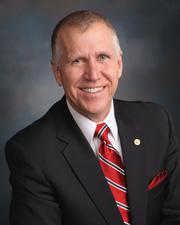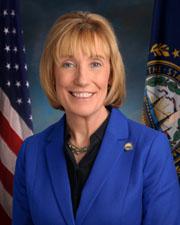0
Border Patrol Enhancement Act
1/3/2025, 8:58 PM
Summary of Bill S 1444
Some key provisions of the Border Patrol Enhancement Act include:
1. Increasing funding for border security measures, such as the construction of physical barriers and the deployment of technology like surveillance drones. 2. Hiring additional Border Patrol agents to increase manpower along the border. 3. Implementing new training programs for Border Patrol agents to improve their skills and effectiveness in carrying out their duties. 4. Enhancing coordination and communication between the Border Patrol and other law enforcement agencies to better address border security threats. 5. Strengthening penalties for individuals who attempt to illegally cross the border or engage in other criminal activities related to border security. Overall, the Border Patrol Enhancement Act aims to bolster the nation's border security efforts and ensure that the Border Patrol has the resources and support needed to effectively carry out its mission of protecting the US borders.
Congressional Summary of S 1444
Border Patrol Enhancement Act
This bill addresses various issues related to U.S. Border Patrol staffing.
The bill establishes for the U.S. Border Patrol an authorized personnel level of 20,500 agents, which may be adjusted by the Department of Homeland Security using a validated personnel requirements determination model required by this bill. Specifically, the U.S. Border Patrol must complete a personnel requirements determination model and contract with a research entity to analyze the validity of the model.
The bill also provides for higher minimum pay rates for agents.
Furthermore, the U.S. Border Patrol must require agents, employees, and certain contract employees to participate in continuing education on various topics, including (1) the nonlethal use of force policies and de-escalation strategies; (2) identifying and responding to vulnerable populations, such as children and victims of human trafficking; and (3) relevant cultural, societal, racial, and religious training.
Read the Full Bill
Current Status of Bill S 1444
Bipartisan Support of Bill S 1444
Total Number of Sponsors
5Democrat Sponsors
0Republican Sponsors
5Unaffiliated Sponsors
0Total Number of Cosponsors
4Democrat Cosponsors
2Republican Cosponsors
1Unaffiliated Cosponsors
1Policy Area and Potential Impact of Bill S 1444
Primary Policy Focus
ImmigrationPotential Impact Areas
Alternate Title(s) of Bill S 1444
Comments

Birdie Atkins
1 year ago
This bill gonna make border patrol stronger, but it gonna cost us taxpayers too much.

Charlee Pollard
11 months ago
This bill is so bad, it's gonna make things worse for all of us. I can't believe they're really gonna do this to us. It's just not right, you know?




